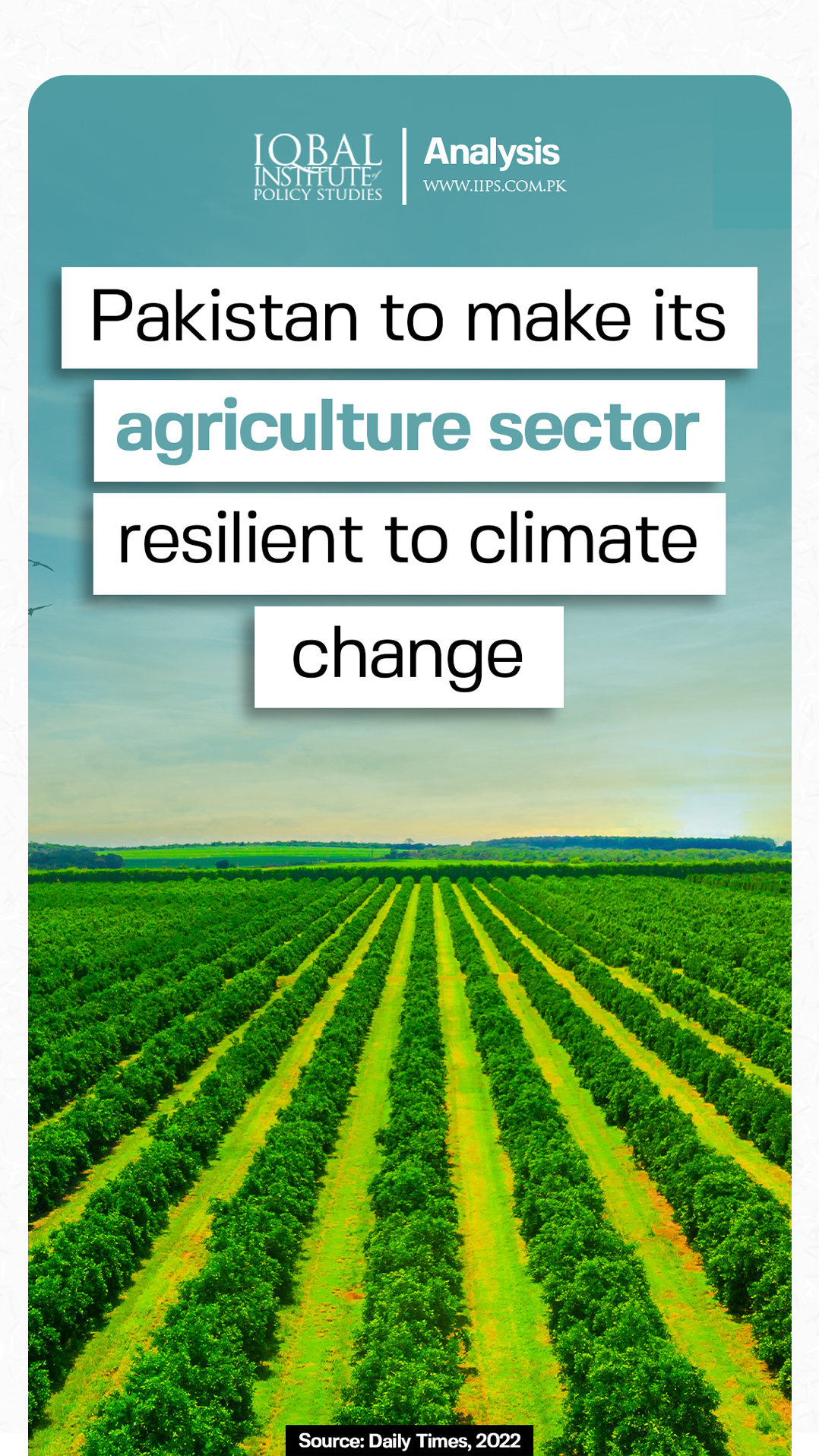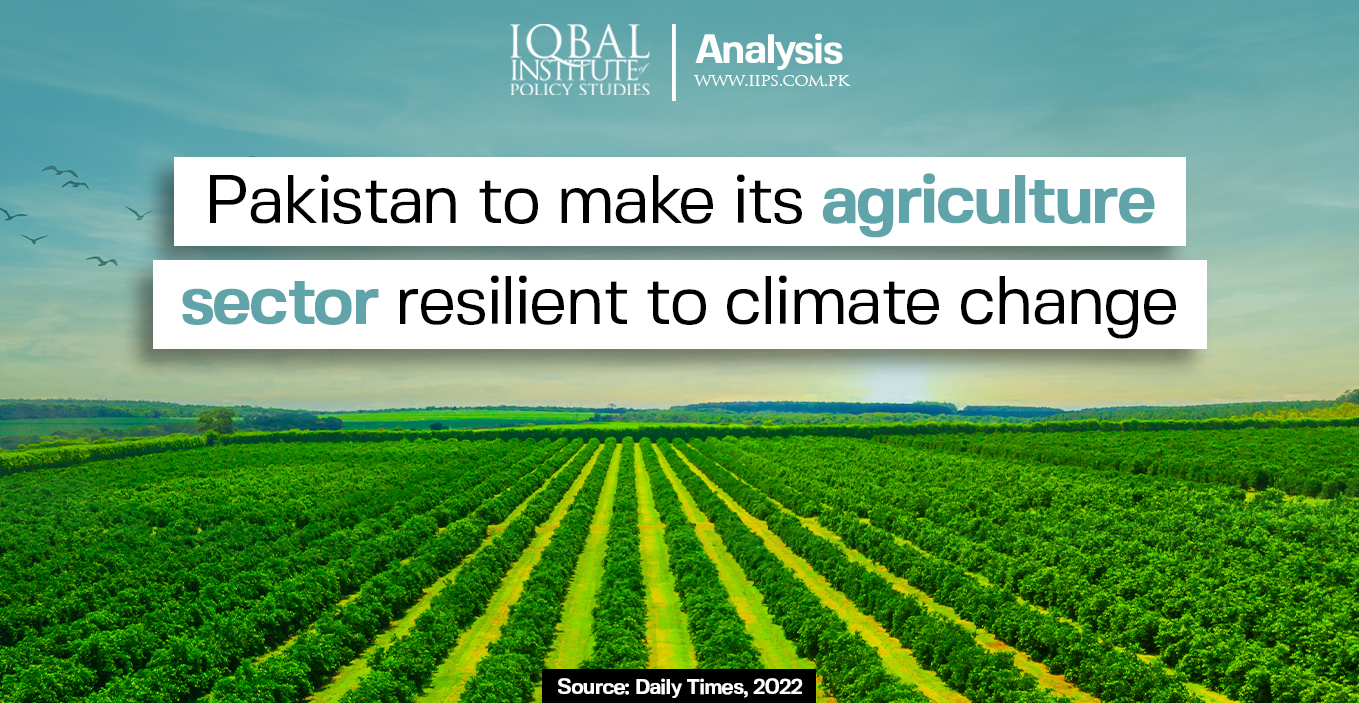The government urged the need to make the agriculture sector resilient enough to withstand the impact of climate change and protect the livelihoods of dependent farming communities.
Due to global climatic changes, the agro-based economy of Pakistan is under threat. Climate change is likely to exert adverse impacts on productive resources and ultimately on the agricultural productivity of Pakistan. Agriculture is the foundation of food security in the developing world, which provides essential food for human consumption and feed for livestock and provides raw materials for industry and value-added products for both domestic consumption and international markets. The major climatic impacts on agriculture are increasing temperatures in arable areas, change in rainfall patterns, increased monsoon variability, changes in irrigation water availability, severe water-stressed conditions in arid and semi-arid areas, etc.
According to the D-8 Agricultural Ministerial Meeting on “ Agriculture and Food Security: Promoting Climate Smart Agriculture”, the agro-industries and their contributions to the global greenhouse gas emissions were at minimum possible levels.
The conference has provided a platform where the government can commit to eradicating poverty, ending hunger, combat climate change, and address the challenge of reducing food loss and waste. Climate change has become the most significant challenge to achieving sustainable development goals, and it threatens to drag millions of people into never-ending poverty and food insecurity.
The production of wheat, rice, maise, sugarcane, potato, onion, and groundnut increased due to the excellent agricultural policies of the government.
This year has been remarkable for Pakistan’s agriculture sector, and the economy boosted with the record agricultural production, indicating a lesser reliance on food imports in 2021-22. Additionally, due to the favourable policies and interventions, the export of agro-commodities has increased significantly, including mango by 28.6%, citrus by 31.25% and potatoes by 28%.



Leave a Reply